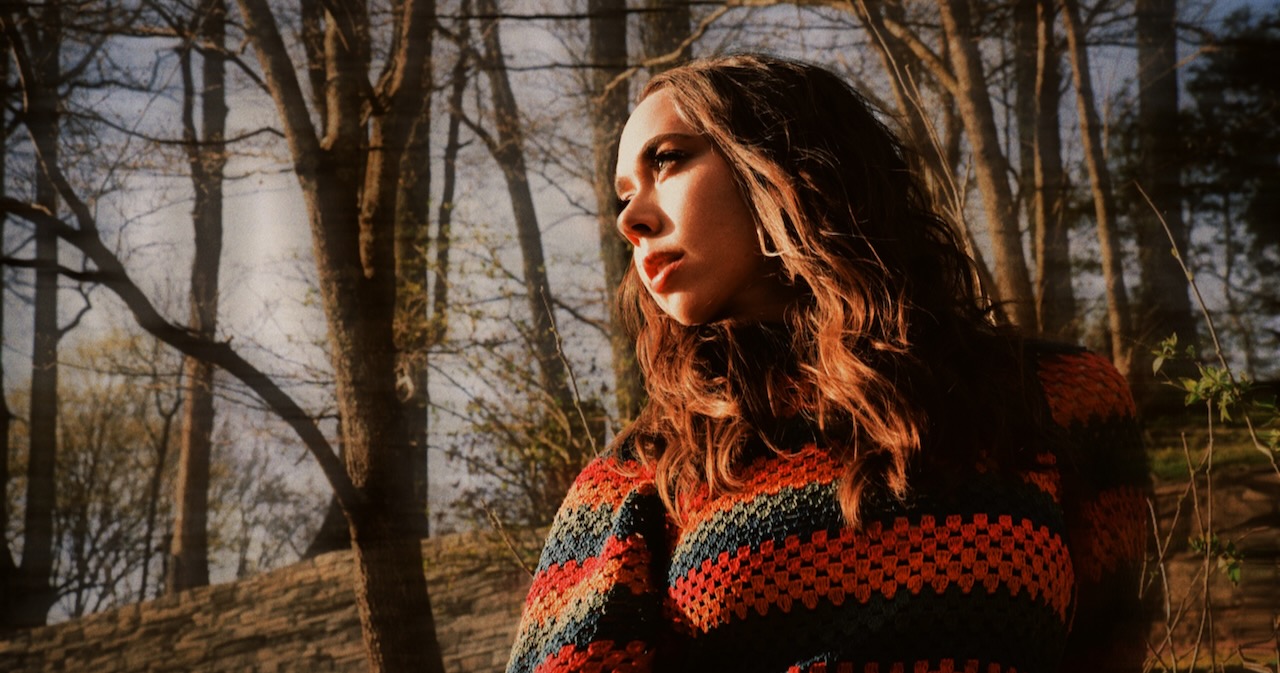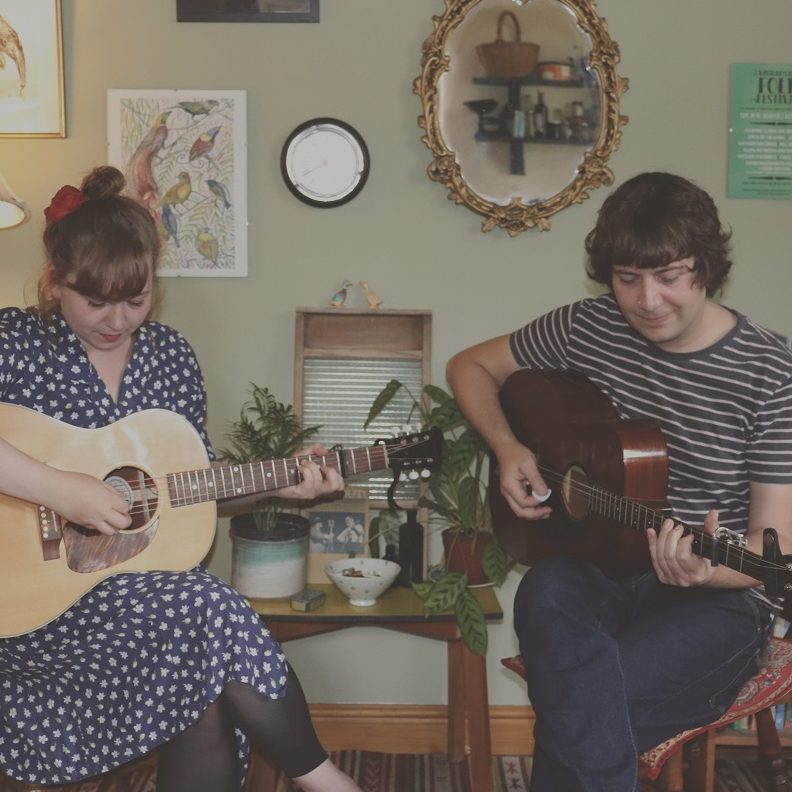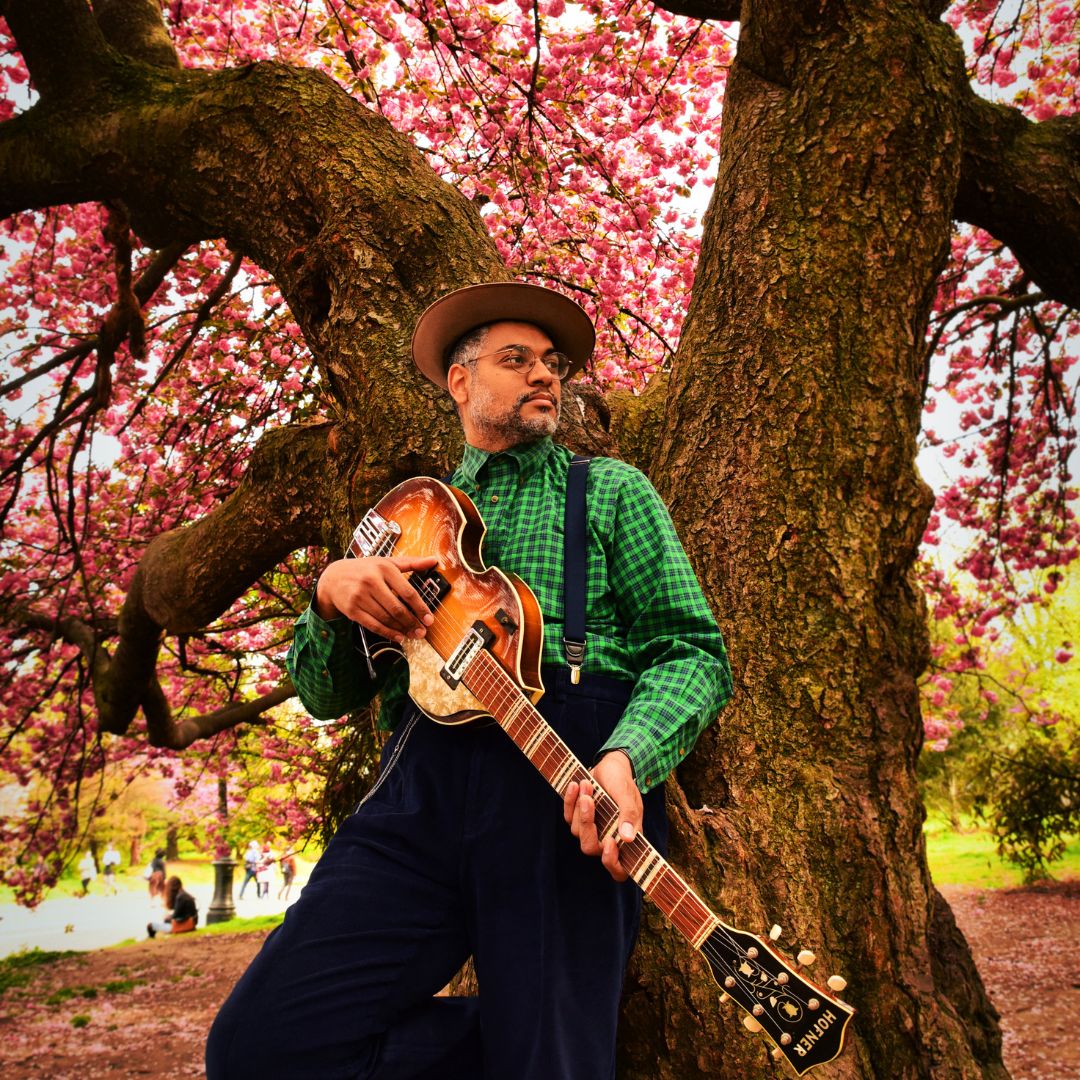Perspective. A universal concept, but also something which bears the potential to be entirely different from one person to the next. How one person views a setting, an experience – or even something as simple and innocent as a Polaroid picture – can set the tone for how they come to hold onto and look back on an entire memory.
The 11 songs on Polaroid Lovers, the seventh album from multi-Grammy-winning singer-songwriter Sarah Jarosz, not only presents the bulk of its musical subjects from a variety of vantage points, but the very making of this record is a story built on a shift in perspective for Jarosz herself.
“World on the Ground was my first traversing into really working on songwriting as more of a storyteller and not necessarily always writing from my own perspective or writing my own story. Or, maybe a better way to say it would be, from a confessional kind of point of view,” says Jarosz. “I think that really carried over into [Polaroid Lovers] and was very much assisted by the people that I was co-writing with,” she adds. “And so I think by co-writing all the songs and by not being in a solitary mindset, I was able to more easily slip into trying to write the songs from a more universal perspective.”
Jarosz is nowhere near a newcomer to the concept of collaboration, both in live performance and in songwriting for studio records. Just ask mandolinist and songwriter Chris Thile, former host of the iconic live performance/radio show Live From Here, or Sara Watkins and Aoife O’Donovan, Jarosz’s creative cohorts in the Grammy-winning roots supergroup I’m With Her. The New York-to-Nashville transplant carved out her place in the musical landscape with an indubitable gift for solo songwriting. This gift propelled Jarosz forward for a host of years, a slew of awards, and an ever-growing body of recorded work. However, staying a self-contained songwriter wasn’t without constraint – a state of affairs Jarosz admits was largely self-imposed through much of her early career, for the sake of her own artistic voice.
“I was very closed off to co-writing especially for my first couple records,” she says. “I had managers and label people always trying to set me up on co-writes and I did a couple, but I just don’t think I knew my voice well enough and I hadn’t had long enough writing on my own, performing on my own, and figuring out my sound. I think I was just worried that my voice would get lost in those [writer] rooms.”
Jarosz’s deliberate decision to not only include co-writing, but make it a dominant pillar of Polaroid Lovers seems entirely understandable as a way to push her own creative boundaries. She isn’t shy about sharing the burst of confidence that also arose within her while writing songs for the album. “I really don’t think I could have made this record even five years ago,” she says. “There were so many moments in the studio that I mean, if I’m being honest, kind of – I hate to use the word scared – but challenged me.”
If it feels strange to envision a creative powerhouse of Jarosz’s caliber struggling to embrace new musical ideas, there are plenty of specific sonic snapshots in the songs of Polaroid Lovers that Jarosz can look at through the lens of her past self and know just how differently things could have gone.
“For instance, the beginning of ‘Jealous Moon’ – when the guitar and the drums come in like right at the top – I was like, ‘Whoa, this is on a new playing field for me and a stretch from what I’ve done before,’ but I loved it,” she says. “At the end of the day, my barometer [is about] if the music is moving me, if I believe in it, and if I can proudly sing every lyric with a stamp of approval. And so I think something like that [style of introduction] – I might have just shut it down. Like, it would have scared me a little too much maybe five or 10 years ago and I would have said, ‘No, that’s not me. So we’re not going to do that.’”
Though “Jealous Moon” starts the music of Polaroid Lovers with an adventurous hook, Jarosz actually made the shift to disregard fear and connect with her inner co-writer in her mind from the very first day she met producer Daniel Tashian, while the two co-wrote “Take the High Road” – an upbeat song about staying true to oneself and not shying back from what feels right. “The thing that’s so refreshing and cool about Daniel [Tashian] is that he’s just so open and so endlessly curious about all things music and I think [he] would just be creating all the time if it were up to him,” Jarosz admits.
A seasoned songwriter and collaborator known for his work on Kacey Musgraves’ Golden Hour, Tashian brought Jarosz out of her comfort zone, often literally, in providing many changes of scenery for their writing sessions. “I met [Daniel] in March of 2022, which was when I started writing for this record, and… he just kind of welcomed me in to his family,” Jarosz says. “I wound up going on these kinds of writing retreats… and that was cool to just, get out of Nashville, shift our perspective, be in a different place, and just be really open to to the muse and to what would come.”
Other times Tashian’s sharing of simple but impactful thoughts and his own decisive opinions helped to nurtured a spirit of open possibility regarding what Jarosz would be able to write, but also ideally what she would find joy in playing for herself, as well.
“Daniel said something when we were in the studio that really resonated [with me]: ‘Why would you just want to make the same record over and over again?’ I love that, because I think you try to find your voice and hone your voice over the course of a career but the fun is in exploration – at least for me. I mean, maybe some people find comfort and repetition and that’s fine but I really love exploring and ultimately seeking what serves the song. I mean, that’s what it comes down to at the end of the day.”
Running parallel to this expanding circle of people, ideas, song forms, and stories that Jarosz was inspired to put into Polaroid Lovers are her personal tools of the trade – particularly her octave mandolin. An instrument Jarosz has grown to appreciate over the years alongside her artistry and proficiency with the mandolin, guitar, and banjo, the octave mandolin is another meaningful element of creative expanse, change, and consistency that’s become integral to who Jarosz is as a musician and what she wants to sound like.
“[Polaroid Lovers] feels more like me than ever before. Even though there might technically be some differences, I feel that it’s very strongly my voice and my sound. I think a huge part of that is my octave mandolin being a prominent texture,” she says. “I’ve gotten to this place where the octave mandolin feels like my sound in a way and I really sort of gravitated towards that instrument over the course of the years.”
A derivation of the mandolin, the octave mandolin is a fitting instrument to feature on an album that reflects new and familiar points of view. “Whenever I play octave [mandolin], I feel like, ‘This is me.’”
Beyond its presence being a defining musical attribute, for this album especially Jarosz says the octave mandolin was also a tool of creative focus amidst everything new and sometimes daunting. “Having [the octave mandolin] sort of be the through-line on this album helped me in those moments where I felt challenged by a sonic thing that felt new,” she says. “The octave mandolin would kind of make me feel like I was grounded.”
Though grounded, one need not mistake Jarosz’s sense of musical stability with any kind of fixation on genre. While there’s almost no escaping others’ archetyping of Jarosz’s work, Polaroid Lovers is neither a show of rebellion against her musical foundations, nor a calculated attempt to partition an exact ratio of familiar stylization with ideas new to her writing process.
“I personally don’t like to think of myself in terms of genre and I never really have,” she says. “It can be frustrating for me when people say, ‘Oh, you’re this, you’re that’ and I feel like, ‘Well, no…’ I think about [music] in terms of if I like it or not.” She adds, “I’ve just always felt that way and I’ve always listened to so many different types of music. It just feels too narrow, too limiting, to have to fit too squarely into a box.”
Despite the fact that the general public can launch a barrage of staunch opinions about the style of Jarosz’s work or what they may perceive is “right” about it, Jarosz says there’s a whole other dimension to Polaroid Lovers yet to be unveiled that won’t come into view until she’s out on the road, playing live, and connecting directly with everyone who’s listening. “The difference between performing a song in the studio versus performing it live in front of an audience is that I think songs sort of start to take their own journey.”
She adds, “I know my story, or I know my part of it. But sometimes, if you can be vague enough, you can almost keep it secret a little bit, where it’s like my story and my feeling about it is my own and then other people get to find their story in it as well. I think something that will be fun in singing these songs over the next however many years is discovering new perspectives with [audiences]. The perspective will really come singing [the songs] over the course of the next year on tour. I’m very excited about getting to do that.”
Ironically, all the talk of a growing compendium of artistic styles, of new collaborators, of new musical techniques, and of new ways to tell new stories truly hammers home the notion that Jarosz’s musical world is an ever transforming space – rather than one made up of experiential snapshots, as Polaroid Lovers is aptly described. Still, Jarosz came up a solo writer and one of the biggest curiosities around potential changes ushered in by this record would be how she views the dynamic of writing music alone versus writing her music with others. Not surprisingly, Jarosz doesn’t see an inner conflict on the horizon. It’s all “the more the merrier.”
“If anything, this [album] just expanded my community, which is a wonderful thing,” Jarosz says. “Especially now living here in Nashville, I think it’s made me feel more a part of this great community. Whereas when I was 18, I think I felt like there was something to lose in writing with people – that being, losing my voice or like kind of losing my way a little bit. Now I don’t feel like that and I think that there’s nothing to lose by sitting down and trying to be creative with with someone else. I think I will always do that from here on out, but it definitely will be simultaneous to me also writing by myself. That’s something that I don’t ever want to lose and that I want to keep doing for as long as I can.”
Photo Credit: Shervin Lainez






